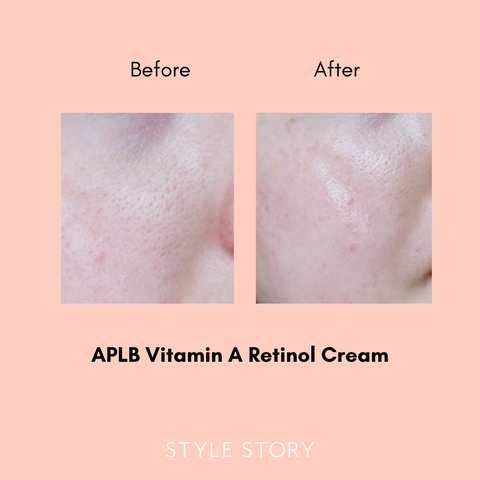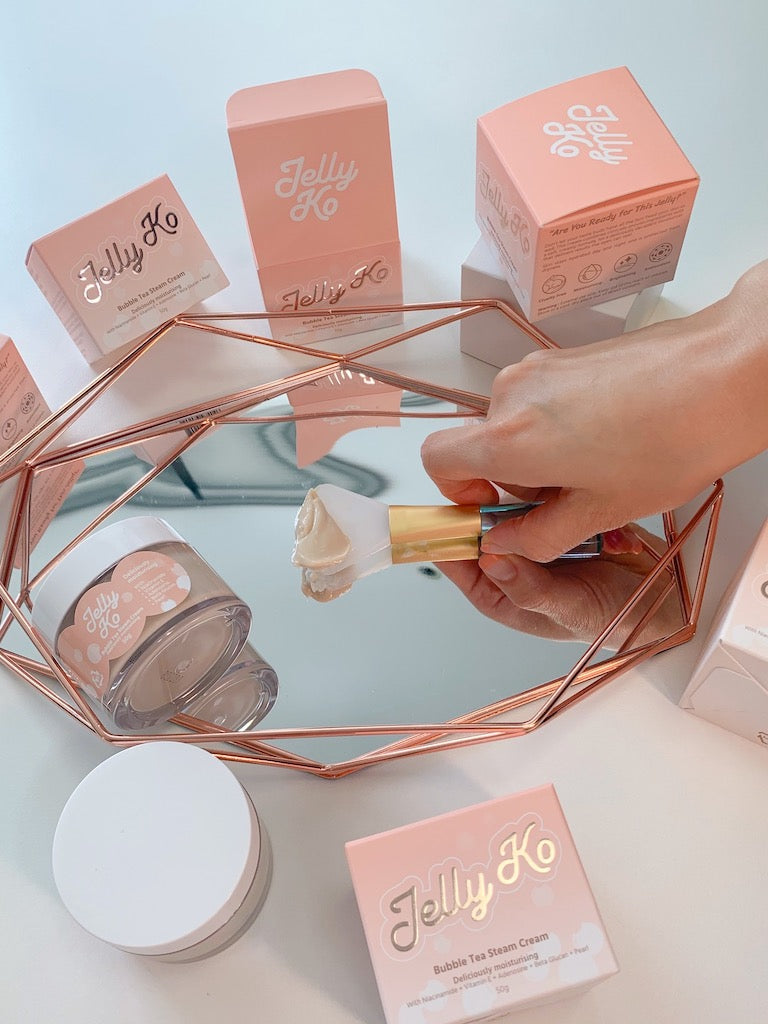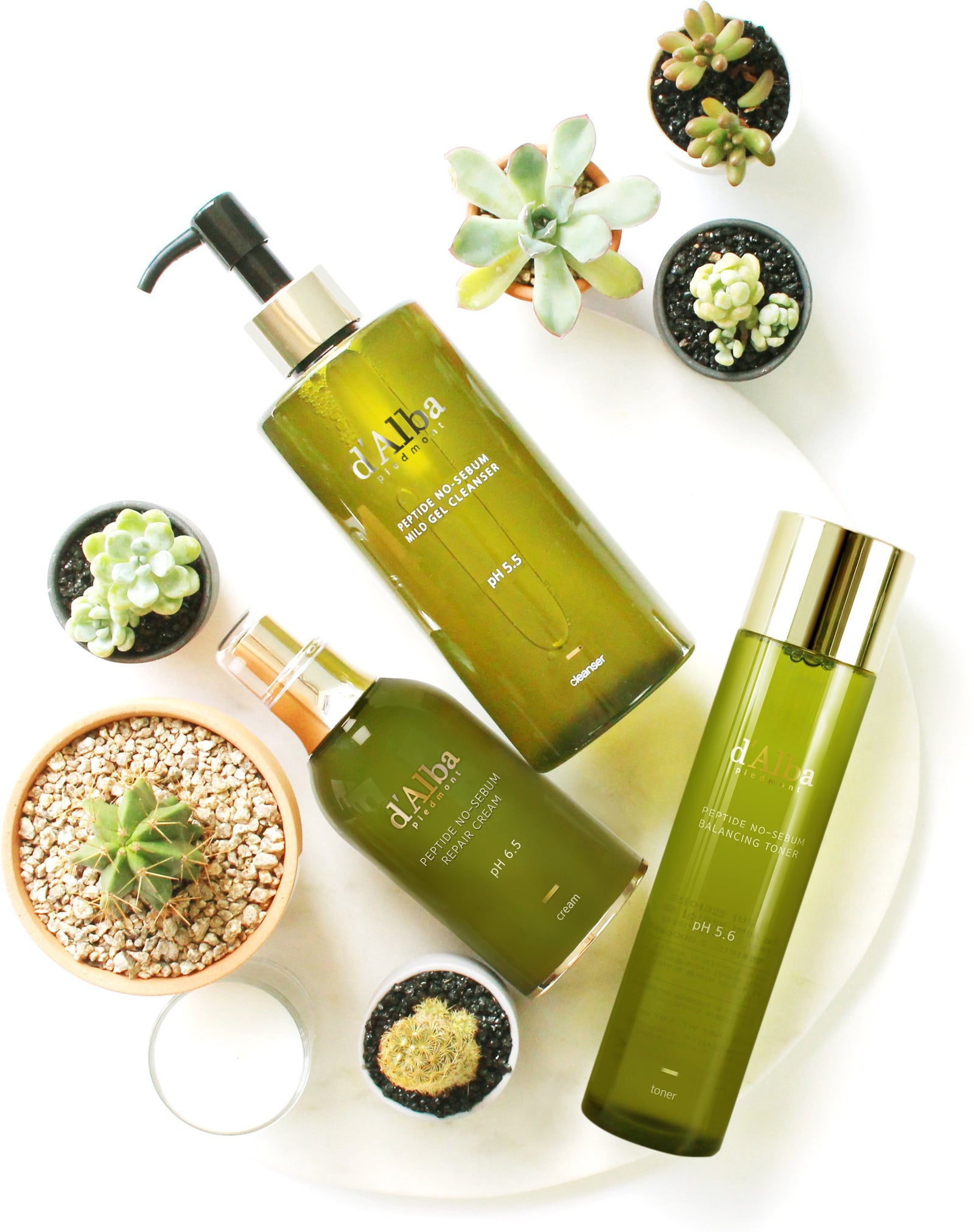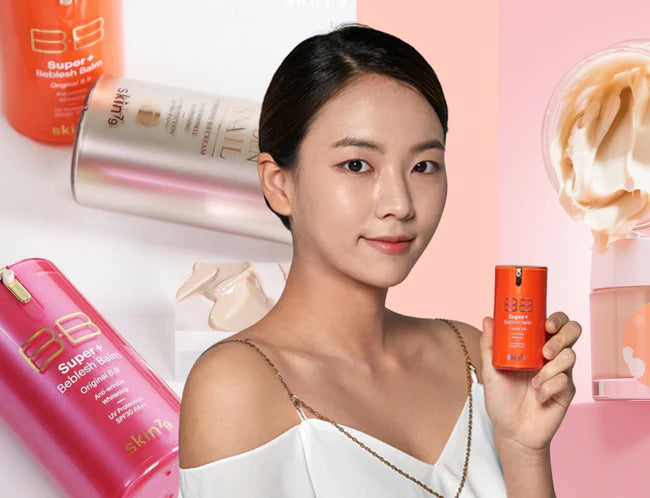The Korean Beauty Show 🎧 Your K-Beauty audio library starts here →
Menu
Retinol in Korean Skincare
October 19, 2021

Retinol in Korean Skincare
In Western skincare, retinol is the holy grail of skincare ingredients. Praised by the likes of Vogue, Elle and even Sex and The City, retinol promises to rewind the clock and restore your skin's youthful glory. So, if such a unicorn product exists, why has it not found its way into the heart of K Beauty?
CONNECT WITH ME
Instagram: www.instagram.com/lauren.kbeauty
Facebook: www.facebook.com/stylestory.au
Website: www.thekoreanbeautyshow.com
Pinterest: https://www.pinterest.com.au/stylestoryau
Tik Tok: https://vt.tiktok.com/ZSaHUgHL/
Download Your Free Guide to K-Beauty:
https://manage.kmail-lists.com/subscriptions/subscribe?a=XgHS8t&g=SmUKy
NEWS HEADLINES - J ONE VS COSMAX
J. One Cosmetic filed a complaint with the Fair Trade Commission against beauty product manufacturer Cosmax for forcing it to pay for 200,000 sets of makeup products at an unwanted extra cost of over 2.4 billion won ($2.02 million).
QUESTION OF THE WEEK - What's the best place for a facial in Seoul
This depends on the area you’re closest to as well as what kind of treatment you're hoping to have done (a facial vs a cosmetic treatment).
I know good clinics, spas & aesthecians in Gangnam, Hongdae / Hapjeong and Myeongdong so feel free to get in touch and I'll give you my top recommendations.
Episode Summary - Retinol In Korean Skincare
What is Retinol?
Retinol is a powerhouse ingredient that can transform your skin texture - from acne scarring, pigmentation, to fine lines and signs of ageing.
Belonging to the Vitamin A-family, retinoids go further than simply the top layer of the skin (the epidermis). They actually penetrate to the dermis beneath.
Once they are in the ‘middle layer’ of your skin, the molecules boost the production of elastin and collagen. This leaves you with plumper, younger looking skin.
Retinol is also useful in the treatment of acne because it reduces sebum production. It thins the top layer of the skin while at the same time thickening the dermis. Retinoids promote blood vessel formation, as well as unclogging your pores. For this reason, many say it is a life saver for acne scarring and fine lines.
Another well known benefit is that it stimulates faster cell turnover which increases collages.
Retinol and its prescription counterpart, Tretinoin, have been shown in peer-reviewed studies to work in three main ways:
- Prevent collagen loss by inhibiting the enzymes that degrade collagen (Archives of Dermatology, 2002);
- Act as an antioxidant (Methods in Enzymology, 1992); and
- Treat fine lines, wrinkles, and discoloured skin by increasing cell turnover (Archives of Dermatology, 2002).
If you’re thinking “Ok this product sounds amazing what’s your problem!??!!?” then bear with me.
While retinol does have amazing properties and can be an incredibly beneficial, like most good things, it’s not without side effects.

The Flip Side of Using Retinol
Retinol can take up to 6 weeks to start working and in that period the skin can become dry, flaky, and sensitive as it acclimatises to the product.
Sensitivity
The skin should settle once it gets used to the retinol, however those with sensitive skin may find it difficult to reach this period. If you develop serious side effects like a constant burning sensation, you may want to consult a dermatologist.
Sunburn
Another thing to watch out for when using retinol is sunburn. Retinol is a mild inhibitor of tyrosinase. This means it increases the photosensitivity of your skin and heightens the risk of sunburn and hyperpigmentation. This is especially so during summer. If you don't wear sunscreen or don't remember to regularly apply it, using retinol is not a good fit for you.
Australians are already at high risk of skin cancers and melanomas due to our harsh sun and proximity to the hole in the ozone layer, so this is definitely something to watch out for. If you work outdoors or like spending time in the sun, it's best to skip the retinoids altogether as you could risk damaging your skin.
Dryness & Flaking
Retinol can also dry out your skin causing flakiness and dry patches. Unfortunately for some people, it can be very hard to get out of this cycle of flakiness, particularly if they are already prone to dryness or sensitivity.
A No-Go for Pregnancy & Breastfeeding
Retinol is not recommended for women who are pregnant or breastfeeding because it may increase the risk of birth defects and miscarriages. There has been some links to long-term carcinogenic effects however more studies are needed to form conclusive evidence.
Use Caution If You Have Eczema or Dermatitis
Finally, retinol and eczema are not friends. If you have eczema or dermatitis, it is best to avoid using retinoids. Instead, opt for gentler types of anti-aging ingredients.
So, why hasn’t K Beauty embraced retinol?
First, retinol exists in Korea as does Tretinoin. The Korean Ministry of Food & Drug Safety has listed approved ingredients and their limited concentration for each type of functional cosmetics. For example, for anti-wrinkle products, 4 ingredients are approved:
- Retinol 2500IU/g
- Retinyl Palmitate 10000 IU/g
- Adenosine 0.04%
- Polyethoxylated Retinamide 005%-0.2%

A Gentle Approach to Skin Care
In addition to all of those mentioned above, the main reason that Koreans haven't embraced retinoids is because K-Beauty focusses on a gentler approach to skin care.
Koreans take a preventative approach to skin care from an early age. They view ingredients like retinol as ‘harsher’ and therefore a ‘last resort option’ against anti-ageing.
The multi-step method that K Beauty is famed for gently cares for the skin at every level to ensure adequate cleansing, toning, ph balance and moisture levels.
Priority on Consistency Rather Than Dramatic Reversal
Koreans prioritise consistency in their skincare and achieving desired results over time rather than intense and dramatic ‘reversal’ results. They also focus on products that calm and soothe the skin rather than products that are harsh and drying.
Korean skincare is full of gentle ingredients like galactomyces, niacinamide, snail mucin, glutathione and liquorice root extract, all of which are known for their anti-ageing properties. However, unlike retinol these are gentle on the skin and fine for those with sensitive skin.
Ultimately, one of the biggest factors is that Koreans are heavily focussed on prevention and start looking after their skin at a much younger age. Westerners can often neglect their skin or partake in activities that promote premature aging (ahem, suntanning, not wearing sunscreen) and then resort to drastic measures to improve the damage later in life.
Cheaper, Quicker Access to Dermatology
Another simple reason is that a trip to the dermatologist is far cheaper and more accessible in Korea than in Western countries. Whereas an appointment with a dermatologist will set you back about $300 dollars in Australia and is often seen as a last resort for those with serious skin issues, in Korea, people regularly visit a specialist to discuss their skincare. It's not uncommon for people to make fortnightly trips to an aesthetician for non-invasive skin management as well.

Retinol in Korean Skincare - Available Products
With all of this said, just because it’s not common doesn’t mean retinol is completely absent in K-Beauty. However, what you will find is that the types of formulas in Korea are far less drying and harsh on the skin than their Western counterparts. Remember, also that these are non-prescription products we are talking about; regular cosmetics, not medicines.
Take APLB Retinol Vitamin A Moisture Cream. This is a great option if you are looking to introduce a Vitamin A product into your nightly routine. It's perfect for drier and mature skin types because it also incorporates peptides, niacinamide and liquorice. The rich texture offers loads of additional hydration so that skin won't dry out. It also works to firm, plump and brighten the overall texture of your skin.
Editor's Note: This product has since been discontinued. If you're looking for a gentle retinol (that offers the maximum legal dose of retinol without drying out your skin) try Jelly Ko's Be Jelly Overnight Dream Serum. Expertly crafted by our team of experts in Korea, it contains collagen, probiotics, 4 types of hyaluronic acid and also comes in a handy refill (that's better for your skin and the environment when its time for a restock).
Other Korean skincare brands with retinol products include:
- Theralogic;
- Innisfree;
- COSRX;
- IOPE; and
- Laneige
Mamonde has launched a Bakuchiol retinol cream, as has 23 Years. Laneige has just released Perfect Renew Youth Retinol.
Of course, in Korea there are also prescription retinoid treatments as well, which are similar to the kinds of products you’ll find overseas that need a prescription - Stieva Cream, Retin A Cream etc. These clearly aren't the types of products that you'll be able to purchase from overseas though. They are regulated as medicine and are therefore only available with a prescription.

One Trick To Look Out For in Your K-Beauty Retinol Ingredients Lists
Some K-Beauty products contain an ingredient called retinyl palmitate that will be listed on the ingredients list separately, according to the two compounds it contains (i.e retinol and palmitic acid). Retinyl Palmitate however is a mild form of retinol with fewer side effects than actual retinol.
In Korea, ingredients that make up compounds are allowed to be listed separately on the ingredient list. This is in contrast to places like America, where the ingredient would need to be listed as "retinyl palimitate" rather than "retinol" and "palmitic acid".
Got Questions About Retinoids In Your Routine?
If you have any more questions about retinol or anti-ageing skincare then please reach out to us! We love chatting all things skincare and can even assist you with creating the perfect routine for your skin.
Did You Enjoy Retinol in Korean Skincare?
If so, be sure to leave your review for the podcast on your favourite podcast app.
STYLE STORY - Your Go-To for K-Beauty Since 2014
All products recommended on the Korean Beauty Show podcast and our website are selected by us. Some of our Show Notes and articles include affiliate links. If you buy something through one of these links we may earn an affiliate commission. This helps offset the costs associated with producing the podcast.
Shop Now
" The Korean Ministry of Food & Drug Safety has listed approved ingredients and their limited concentration for each type of functional cosmetics. Retinol is one"
- Lauren Lee, The Korean Beauty Show podcast



Leave a comment
Comments will be approved before showing up.